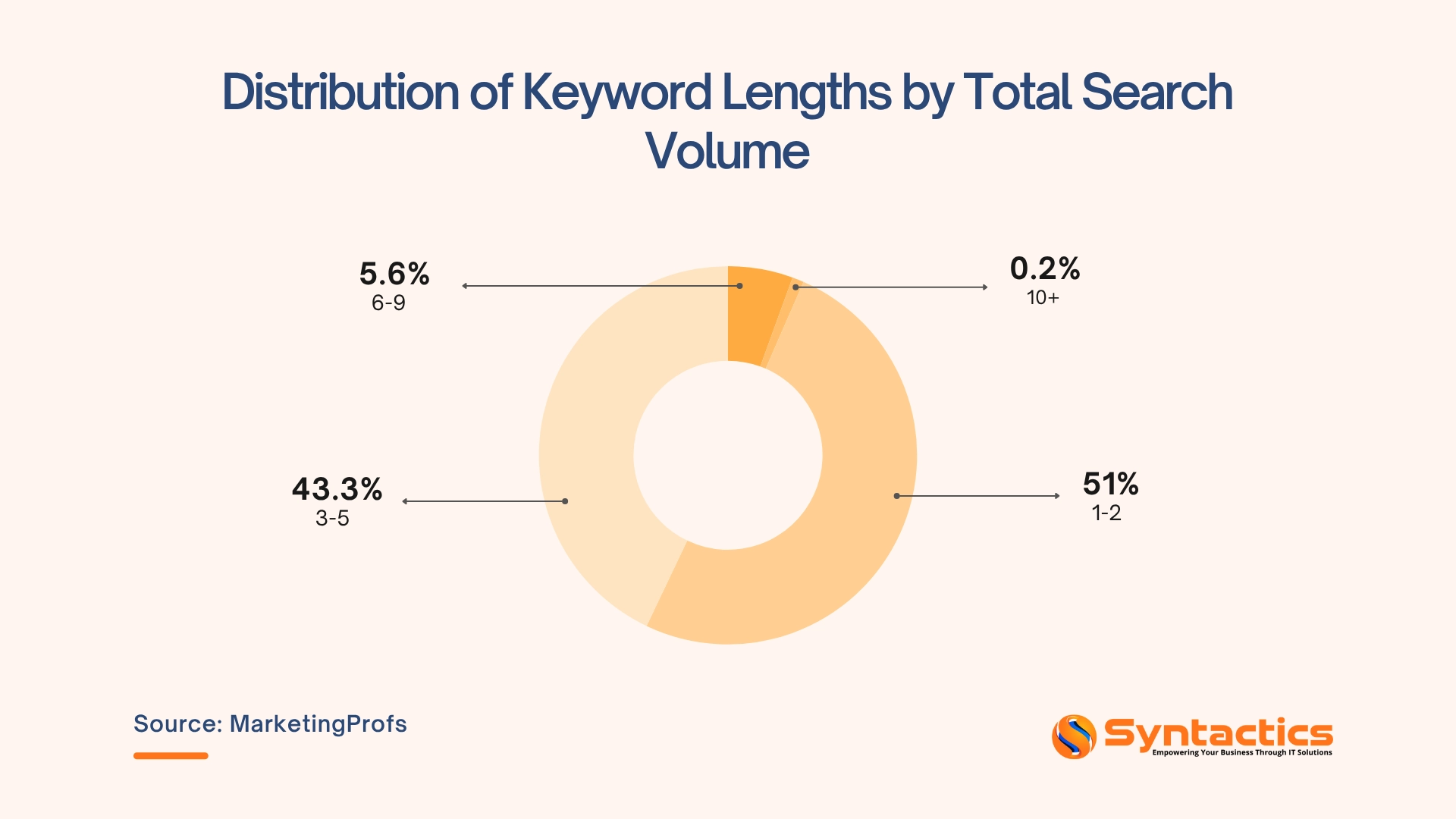
Outrank Rivals Using Keyword Research Competitor Analysis
Competition is fierce in every industry. Businesses are constantly vying for consumer attention, especially in search engine rankings. To ensure that you stay ahead of your rivals, it’s essential to conduct a keyword research competitor analysis to give marketers an edge in SEO (Search Engine Optimization).
When optimizing a website for search engines, selecting relevant keywords is crucial to your business. Chances are, your rivals are also using the same or similar keywords. Thus, choosing popular terms isn’t enough. You should understand what your rivals are doing and how you can do it better. This is where competitor analysis becomes invaluable.
According to Forbes, the top five organic results on a SERP receive 67.6% of clicks. Furthermore, a study revealed that almost half of all search queries have three or five words. These insights highlight the importance of long-tail keywords and strategic competitor keyword research to analyze gaps and opportunities in your SEO approach.
While some may raise ethical concerns about analyzing competitors’ strategies, the truth is that this information is publicly available.
Source: MarketingProfs
Why Investigate Your Competitors’ Keywords?
Keyword research competitor analysis involves identifying the keywords or phrases your rivals are ranking for. This data allows you to create content that can potentially outrank theirs. It’s a digital marketing strategy designed to help you:
- Discover high-performing keywords;
- Understand shifts in market trends;
- Identify algorithm updates affecting rankings, and
- Learn from successful SEO tactics used by others.
Additionally, this type of analysis helps you troubleshoot why certain pages aren’t performing well and provide actionable data to refine your campaigns.
10 Benefits of Competitor Keyword Research
Competitor keyword research helps businesses understand how rivals rank on search engine results pages, regardless of the industry—whether it’s law, travel, or any other field. By using keyword research tools, marketers gain insights into the keywords competitors are targeting and the backlinks contributing to their success.
Here the key benefits of keyword research and competitor analysis:
Gaining a Competitive Advantage
Integrating keyword research competitor analysis into your strategy gives your business an edge over its rivals. You’ll learn which keywords are driving traffic to their sites and how they structure their content. Once you see how their strategies work, you can refine your own SEO efforts better.
Understanding Your Target Audience
Analyzing your competitor’s keywords reveals what your audience is searching for. For instance, Google represents 79.1% of the global market share on desktop devices. Understanding how your rivals rank on this platform is critical. Long-tail keywords, in particular, offer a pathway to visibility and relevance.
Enhancing Keyword Strategy
Using advanced tools, like Semrush or Ahrefs, can streamline your work and improve your strategy. You can see your competitors’ domain authority, backlinks, monthly search volumes, and more.
As a result, you can formulate better long-tail keywords that can outrank them, including keyword gap opportunities.
Identifying Who Your Competitors Are
Naturally, you’ll be able to see who’s using those strategies. Knowing your opponents or rivals helps you plan more effectively.
Discovering Overlooked Keywords
Your competitors might be using keywords you’ve overlooked. With the right tools, you can compare your current keyword list against theirs. This will help you identify new opportunities that could significantly boost your rankings.
Check out our recommended keyword tools here for your competitor research:
Learning From Competitors’ Link Data
Backlinks are a great way to boost your rankings. Backlinko reported that 66% of web pages on the Internet have zero backlinks pointing to them, which makes competitor link analysis even more valuable. Analyzing your rivals’ backlink profiles can reveal untapped linking opportunities and help strengthen your own.
Improving Content Strategy
The average article on the first page of Google contains 1,447 words, indicating depth, value, and quality. Through keyword research competitor analysis, you can improve your brand’s content and find out what gaps to fill to meet site visitors’ needs.
Optimizing Web Design and User Experience
SEO isn’t just about keywords; it’s also about user experience via your site’s web design. A slow or unresponsive site can hurt your rankings. Keyword research competitor analysis can show how rivals balance design and usability, offering lessons to enhance your own UX strategy.
Accessibility is essential to outranking your business rivals.
Local SEO and Geographic Targeting
For businesses operating in a particular location, utilizing local SEO is crucial. Optimizing its Google Business Profile (GBP) and NAP (Name, Address, and Phone) consistency ensures visibility in local searches and maps. Accurate and detailed listings can significantly improve your geographic targeting and local search rankings.
Leveraging Customer Reviews
Your GBP allows customers to provide reviews, and you have an opportunity to respond to them. Customer reviews — especially authentic ones — are vital for online marketing, as many people trust the word of fellow consumers. Positive reviews mean that your brand is being talked about, building trust and boosting your SEO efforts.
Ask happy customers to leave feedback—it builds your online reputation and draws in more organic traffic. Monitoring and responding to reviews signals active engagement to both users and Google.
Final Thoughts
All industries are constantly evolving, and standing still means falling behind. By conducting thorough keyword research competitor analysis, you equip your business with the insights needed to make decisions and implement winning SEO strategies.
Moreover, this strategy allows you to bridge content gaps, build robust backlink profiles, and achieve top positions on desirable SERPs. Aided by the right tools, you can identify high-performing keywords, refine SEO approaches, and stay ahead of industry trends.
Enhance your competitive edge through expert support with SEO services from the Philippines for tailored solutions that drive growth and improve online visibility.
This blog was updated on June 09, 2025.
FAQs About Keyword Research Competitor Analysis
Why is keyword research competitor analysis important for SEO?
Keyword research competitor analysis is essential because it reveals how your rivals are performing in organic search results. Analyzing the keywords they rank for can help you identify gaps in your strategy, target overlooked keywords, and adjust your content and backlink tactics to outrank them.
How do I perform keyword research competitor analysis?
- Identify your top competitors using tools like Google or SEMrush.
- Use SEO tools (e.g., Ahrefs, Moz) to extract the keywords they rank for.
- Analyze their backlinks, content structure, and user engagement.
- Compare findings with your current SEO performance.
- Refine your strategy based on these data to improve rankings.
How often should I perform keyword research competitor analysis?
It’s recommended to perform keyword research competitor analysis at least once every quarter. However, staying updated with competitor moves and algorithm changes means some businesses review this data monthly to maintain flexibility and responsiveness in their SEO campaigns.

















Comment 0